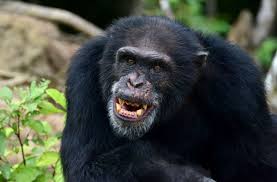What is certain is that sometime well over a million years ago, some new, comparatively modern, upright beings left Africa and boldly spread out across much of the globe. They possibly did so quite rapidly, increasing their range by as much as twenty-five miles a year on average, all while dealing with mountain ranges, rivers, deserts, and other impediments and adapting to differences in climate and food sources. A particular mystery is how they passed along the west side of the Red Sea, an area of famously punishing aridity now, but even drier in the past. It is a curious irony that the conditions that prompted them to leave Africa would have made it much more difficult to do so. Yet somehow they managed to find their way around every barrier and to thrive in the lands beyond.
可以肯定的是,大約100多萬年前的某個時候,一些新的比較現代的直立人離開非洲,勇敢地走向地球上的許多地方。他們遷移的速度可能非常迅速,平均每年增加40公里,一路上跋山涉水,越沙漠,還克服了其他數不清的障礙,他們逐漸適應了不同的氣候,不同的食物來源。有一點至今仍是一個謎——他們是怎樣穿越紅海西部地區的。這一地區現在以氣候干燥而著稱,而在那時氣候更加干燥。很有意思又具有諷刺意味的是,促使他們離開非洲的環境變化使得他們的遷移變得更加困難。盡管如此,他們還是跨越一切障礙,在其他大陸生息繁衍下來。

And that, I'm afraid, is where all agreement ends. What happened next in the history of human development is a matter of long and rancorous debate, as we shall see in the next chapter.
這一點,在我看來,恐怕就是所有一致意見的終點。人類歷史凌晨進程接下來的一個階段是一個長時間爭論不休的問題:這一點我們將在下一章里看到。
But it is worth remembering, before we move on, that all of these evolutionary jostlings over five million years, from distant, puzzled australopithecine to fully modern human, produced a creature that is still 98.4 percent genetically indistinguishable from the modern chimpanzee. There is more difference between a zebra and a horse, or between a dolphin and a porpoise, than there is between you and the furry creatures your distant ancestors left behind when they set out to take over the world.
但是,在我們接著往下講之前,讓我們記住,所有這些發生在過去500多萬年的一系列的進化,從遙遠的、至今仍充滿謎團的南方古猿到完全意義上的現代人類,造就了一種動物,其基因的構成仍然有98.4%與現在的黑猩猩一樣。一匹斑馬和一匹馬,或者一只海豚和一只鼠海豚之間的區別,比起你和黑猩猩,這個被你的遠古祖先在他們開始接管世界時遠遠拋到后面的毛茸茸的動物的區別還要大。












